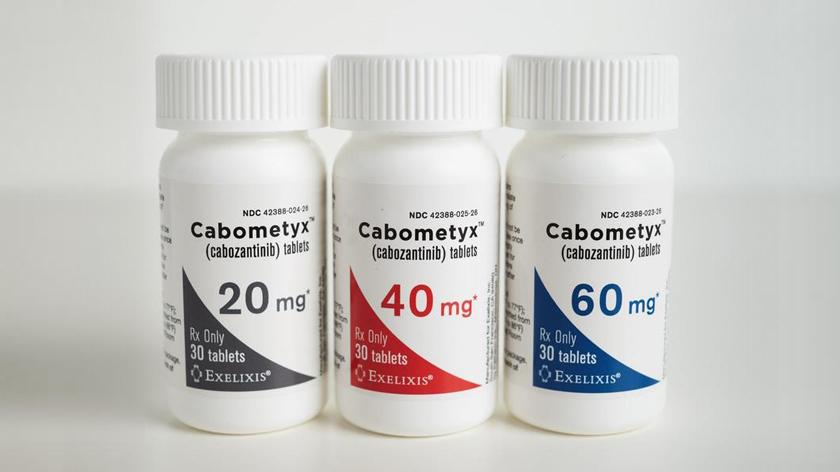NICE rejects Ipsen’s Cabometyx in thyroid cancer

Ipsen’s Cabometyx should not be used by the NHS for patients with differentiated thyroid cancer who have either not responded to or are ineligible for radioactive iodine therapy, according to draft NICE guidance published this morning.
The UK’s medicine cost-effectiveness watchdog has been reviewing use of Cabometyx (cabozantinib) for use in these patients, whose options at the moment are limited to supportive care, since the drug was approved in this setting last year.
In its appraisal document, NICE acknowledged that Cabometyx increases how long people have before their cancer gets worse. However, it said that there is no clear evidence that the drug helps them live longer – because of the way Ipsen ran the main study that supported approval.
In that study – called COSMIC-311 – which compared Cabometyx to placebo alongside supportive care, finding that the drug improved median progression-free survival (PFS) to 11 months from just under 2 months in the comparator arm.
There was no statistically significant difference in overall survival, and NICE’s appraisal committee said patients were not followed up for long enough and there was “a lot of incomplete information” in the study. It also notes that only a subset of subjects in the study received Cabometyx second-line, reducing the size of the sample and making the demonstrated benefits uncertain.
As a result, “the most likely cost-effectiveness estimates are not clear,” said the health technology assessment (HTA) agency. Unusually, however, all its modelling lies within the range of what NICE considers an acceptable use of NHS resources – something that Ipsen’s general manager for the UK and Ireland – Guy Oliver – pointed out in a statement on the decision.
“The decision is […] surprising, due to the fact that cabozantinib fell within NICE’s cost-effectiveness range, especially as it was acknowledged by the NICE committee that there is an unmet need in England and Wales for an effective second-line treatment,” said Oliver.
“It is yet another example of how our health systems in the UK are not fit for purpose and the need for reform is now critical, to ensure innovative medicines for cancers are made available to those who have no other treatment options and a very poor prognosis,” he added.
There are estimated to be around 3,900 new cases of thyroid cancer diagnosed in the UK each year, and differentiated thyroid cancer - when the cancer cells look similar to normal thyroid cells when viewed under a microscope – makes up between 90% and 95% of cases, according to Ipsen.
Radioactive iodine therapy has a good cure rate, a small proportion of patients don’t response to the therapy or can’t take it, and are treated with chemotherapy. If their disease progresses despite that, they have no treatment options, unless they have specific cancer-associated mutations that allow treatment with targeted therapies, such as lenvatinib or sorafenib.
Cabometyx is already backed by NICE for other indications, including as a first-line kidney cancer therapy and for previously-treated liver cancer. The draft thyroid cancer document is now open for comment, with a final decision expected in July.












